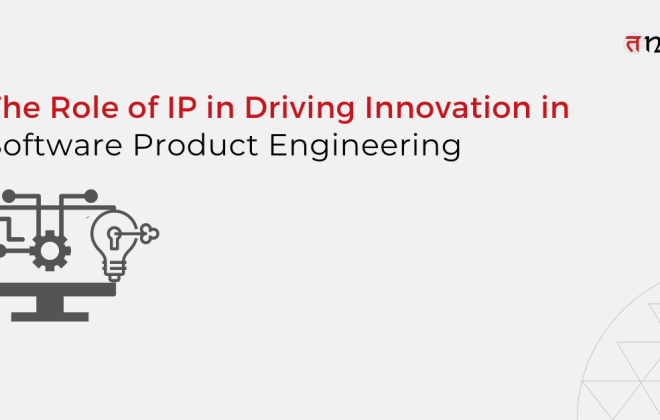The Imperative Role of EDI, APIs, and Custom Software Engineering in Shipment Tracking Solutions
The increase in demand for shipment tracking demonstrates how important it is to contemporary business. Logistics companies are under pressure to prioritize tracking solutions as customers want real-time order monitoring. Both EDI and API technologies are essential; whilst APIs provide real-time insights, EDI guarantees established efficiency. Shipping software providers like Tntra skillfully combine the two technologies to guarantee smooth data transfer, instantaneous tracking, and improved communication. Their customized solutions enable logistics companies to flourish, satisfying changing industry requirements and client expectations in this ever-changing environment.
A logistics services provider operated in partnership with 11 different freight forwarders. Initially, the company had to get into manually processing B/Ls from each freight forwarder’s website to gather the information on the shipment.
It was difficult to obtain any relevant information from various sources, and it was previously in different formats. The logistics company operates globally; thus, language was one of the biggest obstacles to tracking shipments in the past.
To give the logistics company quick access to shipment status information, Tntra, a software product engineering company, partnered with the company to assist in creating a system with shipping APIs that were properly connected with the 11 freight forwarders.
The updated shipment tracking solution ignores specific dates and uses the container number to search all 11 websites. Furthermore, the platform is designed to display an exhaustive list of all Bill of Lading (B/L) entries associated with the searched container and the ability to view specific details for each B/L.
Shipment tracking solutions, such as the one developed by Tntra, use a server-less architecture to navigate various formats between freight forwarding websites by using field mapping. It effectively gathers and sorts information from multiple sources, guaranteeing accurate retrieval of the required content. The aggregated data is carefully processed and stored in a database, with careful attention to activity and error logs. Its multilingual support allows it to work with international freight forwarding websites, offering wide coverage. Ultimately, the centralized ERP system easily interfaces with the refined data, simplifying the formerly lengthy process of managing Bill of Lading details during shipment tracking.
The overall impact of Tntra’s software solutions was very positive. Processing around 15,000 B/Ls daily significantly boosted organizational efficiency by 30-40% within the shipment tracking process. Such a massive volume helped reduce the time and effort required to gather and process information from various freight-forwarding websites. The system’s multilingual support eliminated language barriers for clients during operations, enhancing accessibility. Ultimately, these optimizations and adept shipment API integration streamlined operations and empowered the organization to manage vast quantities of B/Ls, fostering notable efficiency gains within the logistics landscape.
Source: Tntra
Rising Demand for Shipment Tracking: Customer Expectations and Impact
In the US, 43% of respondents say they track deliveries daily, while 96% say they often monitor orders. Notably, millennials are the group that checks their orders the most frequently daily. This pattern indicates that buyers, sellers, and logistics companies are increasingly demanding shipping status information.
Customers consider delivery tracking an essential part of their online shopping experience despite the enormous variations in the quantity and cost of goods placed online. Just 3% of respondents think tracking online orders is irrelevant, whilst a substantial 57% stress its importance. This consumer preference pressures transportation operators to meet evolving monitoring expectations.
According to a study, 59.3% of respondents think that real-time client order tracking significantly impacts brand loyalty and the possibility of repeat business from customers. It’s interesting to note that tracking notifications receive between 50% and 80% more opens than regular marketing emails, which usually receive between 10% and 20% open rates.
Therefore, it is quite evident that an increasing number of customers and businesses are seeking the current status of their orders on a continuous basis. Therefore, there is an increasing need for shipment tracking solutions.
Enabling Efficient Data Exchange: The Role of EDI and APIs in Logistics
Logistics organizations, whether they are involved in local, national, or worldwide shipping, will eventually need to implement cutting-edge shipment tracking techniques. An API and EDI connectivity is the primary method for adding shipment tracking functionality.
What is EDI: Electronic Data Interchange?
Electronic Data Interchange is referred to as EDI. Businesses use it to electronically communicate information and documents in a standardized format. EDI replaces conventional paper-based techniques for exchanging vital documents between businesses or trading partners, such as purchase orders, invoices, shipment notifications, and other information. Enabling systems to communicate and share data without the need for human intervention streamlines corporate operations and allows for seamless communication and data interchange.
The efficient interchange of data across multiple stakeholders is made possible via EDI, which is crucial to logistics. It improves accuracy and speed in logistics operations, enabling smooth collaboration across partners and systems, and expedites communication in shipment platforms by automating processes such as order processing, invoices, and manifests.
- Automated Processes: EDI reduces manual errors and processing delays by automating operations such as order processing, hence streamlining logistics.
- Increased Efficiency: It promotes quicker decision-making by quickening information exchange, which speeds up transactions.
- Increased Accuracy: Errors are reduced by EDI’s reduction of human data entry, providing more accurate and dependable information across shipping platforms.
- Interoperability: It facilitates smoother operations inside the logistics network by fostering seamless communication among various partners and systems.
What is API?
APIs serve as a bridge facilitating communication between two software components through predefined definitions and protocols. Abbreviated as Application Programming Interface, in this context, “Application” refers to any distinct software function. The “Interface” is a service agreement delineating interactions between two applications. This agreement outlines the method of communication via requests and responses. API documentation provides guidelines on structuring these exchanges for developers within software product engineering solutions.
Even though EDI is still a tried-and-true, economical approach, API-based integrations are rapidly growing for two key reasons:
- Enhancing conventional EDI by facilitating real-time data sharing, such as trucking prices and location details.
- Using APIs in place of EDI, especially as digital freight brokerages (DFBs) and third-party logistics (3PLs) integrate APIs into their platforms in addition to technology-driven Transport Management Systems (TMS) and Warehouse Management Systems (WMS) applications.
The smooth transfer of data across various systems is made possible by APIs, which are essential to logistics. Within the domain of a shipping software provider, APIs facilitate effective inter-platform communication, optimizing procedures such as inventory management, rate quoting, and real-time tracking. They enable these suppliers to provide integrated solutions, improving network connection and operational agility throughout the logistics chain.
- Simplified Communication: APIs facilitate effective data exchange between shipping software platforms, promoting smooth integration and smooth communication.
- Updates in Real-time: They improve response by providing immediate access to vital data like rates, inventories, and shipment tracking.
- Increased Flexibility: APIs are flexible and adaptable, allowing shipping developers to quickly add new features and functionalities.
- Better Customer Experience: APIs provide faster access to information and services, which improves customer satisfaction by providing more responsiveness and transparency in logistical operations.
Transform your logistics game with Tntra! Explore the Freight Forwarding case study for a glimpse into streamlined operations and unparalleled efficiency. Elevate your logistics strategy today!
Conclusion: Empowering Logistics Evolution: Tntra’s Integrated EDI and API Solutions
The escalating demand for shipment tracking underscores its pivotal role in modern commerce. Customers’ insistence on real-time order monitoring reflects their evolving expectations, pressuring logistics entities to prioritize tracking solutions. Both EDI and API technologies stand as indispensable tools in this landscape. With its established efficiency and accuracy, EDI continues to drive logistics while APIs surge ahead, offering real-time insights and enhanced connectivity. This evolution reflects a paradigm shift, demanding seamless data interchange and integration across varied platforms.
As a shipping software provider for logistics companies seeking adept solutions, Tntra offers tailored assistance. Tntra’s expertise is leveraging EDI and API integrations, ensuring efficient data exchange, real-time tracking capabilities, and streamlined communication across diverse platforms. Their solutions enhance operational efficiency, facilitate accurate inventory management, enable rapid response with real-time updates, and contribute to superior customer experiences through transparency and responsiveness. Tntra’s holistic approach aligns with the evolving demands of the logistics industry, enabling companies to stay competitive and responsive to customer needs in this dynamic landscape.
Contact Tntra today for more information.




